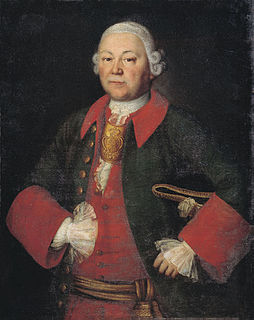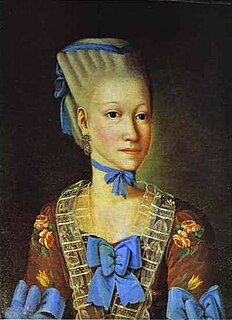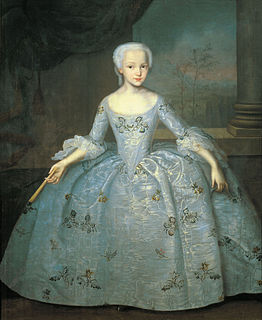 W
WIvan Akimovich Akimov was a Russian painter in the Classical style.
 W
WFyodor Yakovlevich Alekseyev was a Russian painter. His contemporaries often called him the Russian Canaletto, in recognition of his masterful vedute.
 W
WAlexei Petrovich Antropov was a Russian painter active primarily in St. Petersburg, where he was born and died. He also worked in Moscow and frescoed churches in Kiev. His preferred medium was oil, but he also painted miniatures and icons.
 W
WIvan Petrovich Argunov (1729–1802) was a Russian painter, one of the founders of the Russian school of portrait painting.
 W
WVladimir Lukich Borovikovsky July 24 O.S. 1757 – April 6 O.S. 1825) was a Ukrainian and Russian Imperial painter of Ukrainian origin, who dominated portraiture in the Russian Empire at the turn of the 19th century.
 W
WLouis Caravaque was a French portrait painter who worked in Russia.
 W
WPyotr Drozhdin (1745–1805) was a Russian painter. He studied in St. Petersburg under Alexei Antropov and Dmitri Levitsky, and was granted the title of Academician in 1785.
 W
WMina Lukich Kolokolnikov was a Russian painter and teacher.
 W
WDmitry Grigoryevich Levitsky was a Russian Imperial artist and portrait painter of Ukrainian Cossack descent.
 W
WGrigoriis Musikiysky was a Russian painter and engraver.
 W
WAleksander Orłowski was a Polish painter and sketch artist, and a pioneer of lithography in the Russian Empire.
 W
WGrigory Silovich Ostrovsky (1756–1814) was a Russian portrait painter active during the 18th century in the Kostroma Governorate.
 W
WBenjamin Patersen, or Patersson was a Swedish-born Russian painter and engraver known primarily for his cityscapes.
 W
WFyodor Stepanovich Rokotov was a distinguished Russian painter who specialized in portraits.
 W
WMikhail Shibanov was a Russian painter active during the 1780s; a portrait of Count Alexander Dmitriev-Mamonov of which he is known to be the author dates to about this time. Shibanov was a serf of Prince Grigory Potemkin; his date of birth is unknown. Two of his genre scenes are held at the Tretyakov Gallery in Moscow; the above-mentioned portrait is in the Russian Museum now.
 W
WVasily Andreevich Tropinin was a Russian Romantic painter. Much of his life was spent as a serf; he didn't attain his freedom until he was more than forty years old. Three of his more important works are a portrait of Alexander Pushkin and paintings called The Lace Maker and The Gold-Embroideress.
 W
WGrigory Ivanovich Ugrymov was a Russian portrait and history painter in the Classical style.
 W
WIvan Yakovlevich Vishnyakov was a Russian portrait painter and muralist in the Rococo style.
 W
WAlexei Yegorovich Yegorov was a Russian painter, draftsman and professor of history painting.
 W
WIvan Petrovich Zarudny was a Baroque wood-carver and icon-painter from Sloboda Ukraine who was active in Moscow in the reign of Peter the Great. Among his works are several elaborate icon screens and triumphal arches built in wood to celebrate Peter's victory in the Battle of Poltava. Very little is known about him. In the Soviet years much of early Petrine Baroque architecture in the Moscow region, including the Menshikov Tower and the Church of St. John the Warrior, was attributed to this mysterious figure. In more recent works Zarudny has been "classed as a skillful woodcarver and icon-painter in the employ of European masters imported by Peter I".